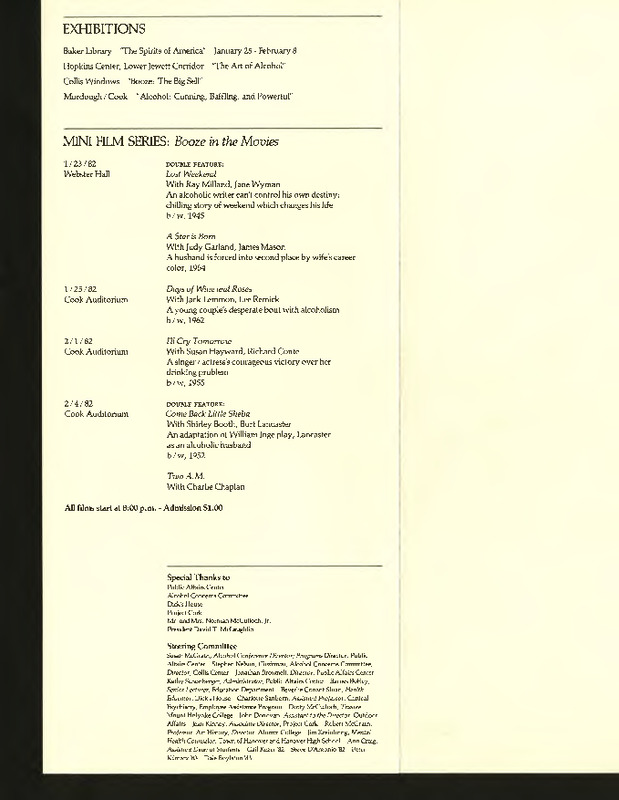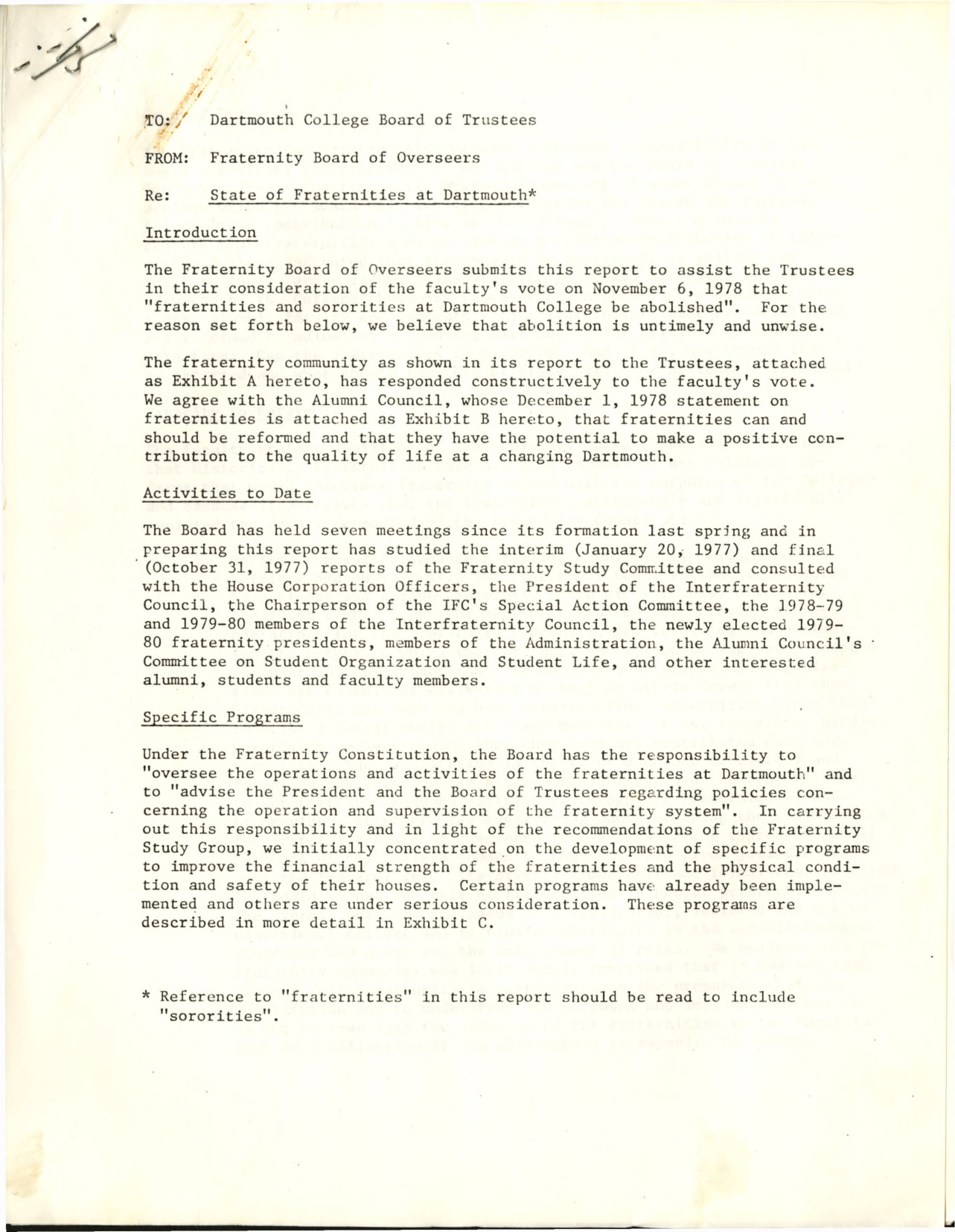Administration Response to Alcohol Concerns
In a March 1980 news release, the Board of Trustees lifted the blanket year-long probation, claiming that all committee reports demonstrated the progress of the system. There was one exception, however, and that was in regards to alcohol policy: “Three of the reports received addressed a compelling need for a more precise institutional policy regarding the consumption of alcoholic beverages in residential units, and elsewhere, at the College.”[1]
Created in 1978, the Alcohol Concerns Committee was spearheaded by Steve Nelson the Director of Student Activities at the new Collis Center. In the 1980 annual report, Nelson reported that “the committee interprets its role as one of education about alcohol use and abuse and its charge as encompassing the entire college community” by promoting awareness and developing resources to tackle the issue of alcohol abuse. While the Epperson proposal and Norman Carpenter’s article was later credited as a major impetus for the formation of the ACC, another important aspect to the Trustee’s commitment to developing an alcohol policy is the fact that New Hampshire raised the drinking age from 18 to 20 in 1979. The College, which traditionally had been trusted by local authorities to police students, faced pressure to develop an alcohol policy that adhered to a raised drinking age. As such, the ACC played a strong role in the development of the new College alcohol policy in 1980–the main goal of which was to establish a culture of education and registration surrounding alcohol.
No matter the cause, under Steve Nelson’s leadership, the ACC fulfill this goal over the course of 6 years, spreading information about alcohol abuse across campus through wide-reaching initiatives.
The most influential of ACC initiatives was the Alcohol Peer Counselor Training Program, managed by Richard Hyde, Associate Chaplain and Lecturer at the Tucker Center. Through this program, Dartmouth students were trained to serve as resources and referral agents for students struggling with alcohol use. In spring of 1980, there were approximately 25 active peer counselors; by 1984, there were 247 active alcohol peer counselors on campus–a testament to the program’s reach. The Alcohol Peer Counselor program also offered students opportunities to show leadership through the Alcohol Outreach initiative. Passionate peer counselors coordinated small-group discussions across campus about issues pertaining to alcohol. The Outreach team targeted first-year students–coordinated with UGAs to facilitate conversations–as well as pledge classes.
_______________________
[1]Board of Trustees Statement on Epperson, March 1980, DA-670, Box 8181, "General Responses to Epperson," Office of Residential Life Records, Rauner Special Collections Library, Hanover, NH.
From the Archives
Click on an image to access the full document, audio-visual components, and/or metadata associated with that item.
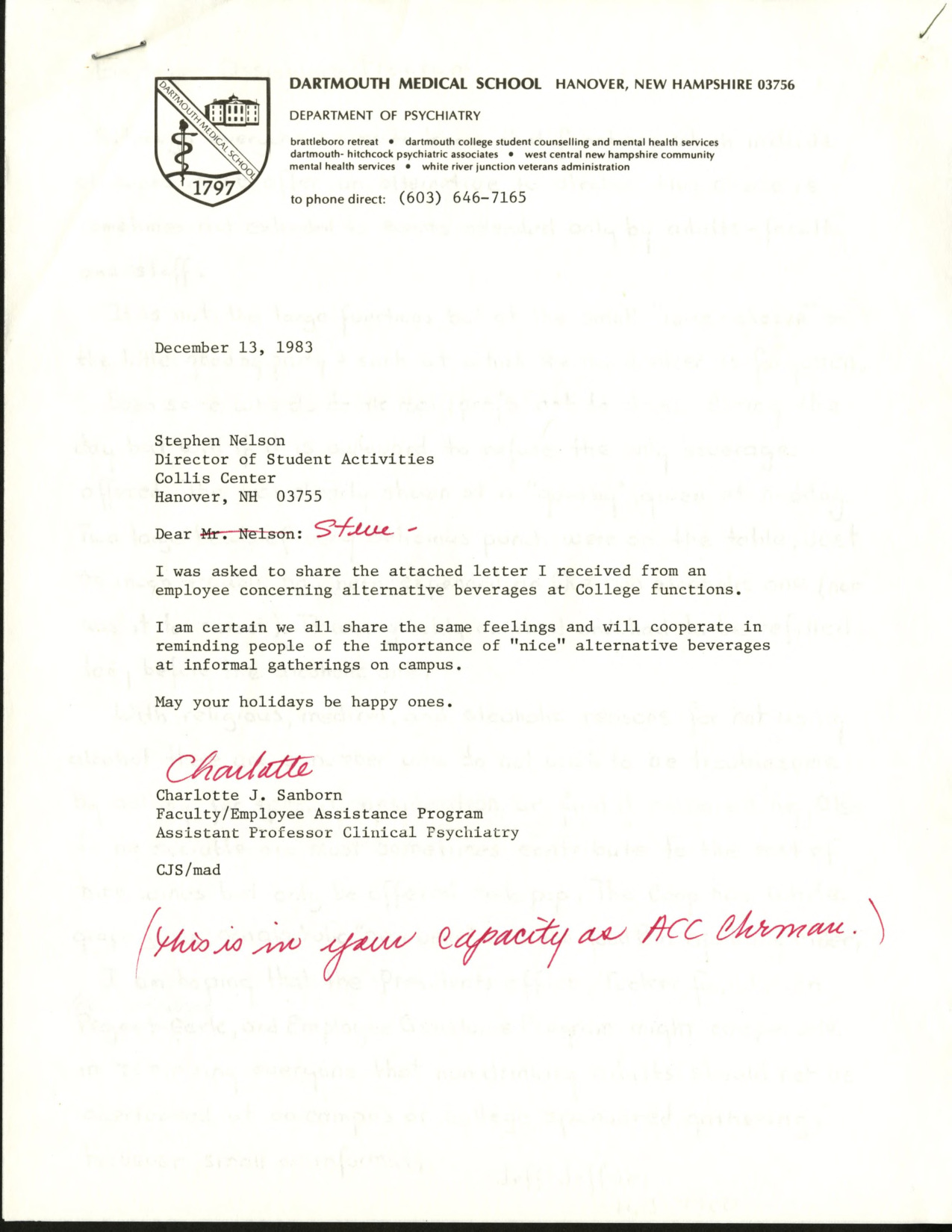
In December 1983 Charlotte Sanborn, member of the Alcohol Concerns Committee, forwarded a letter from a Dartmouth employee to Steve Nelson. In the letter, the employee requested non-alcoholic options for drinks at College events.
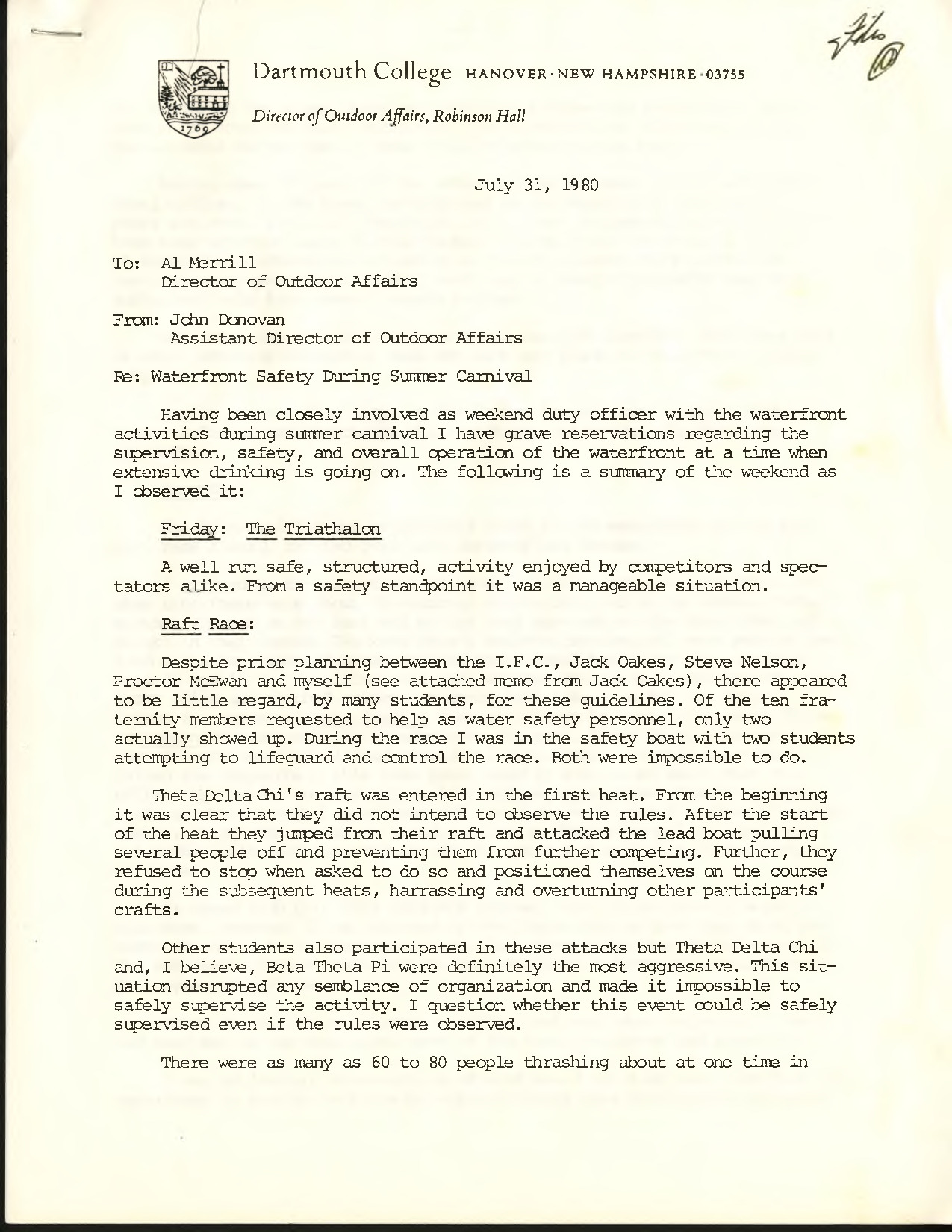
The Office of Outdoor Affairs produced this report in 1980 regarding the danger surrounding Summer Carnival festivities in regards to alcohol use and water safety. Director Al Merrill lamented the difficulty of enforcing Dartmouth's updated alcohol policy at the river.
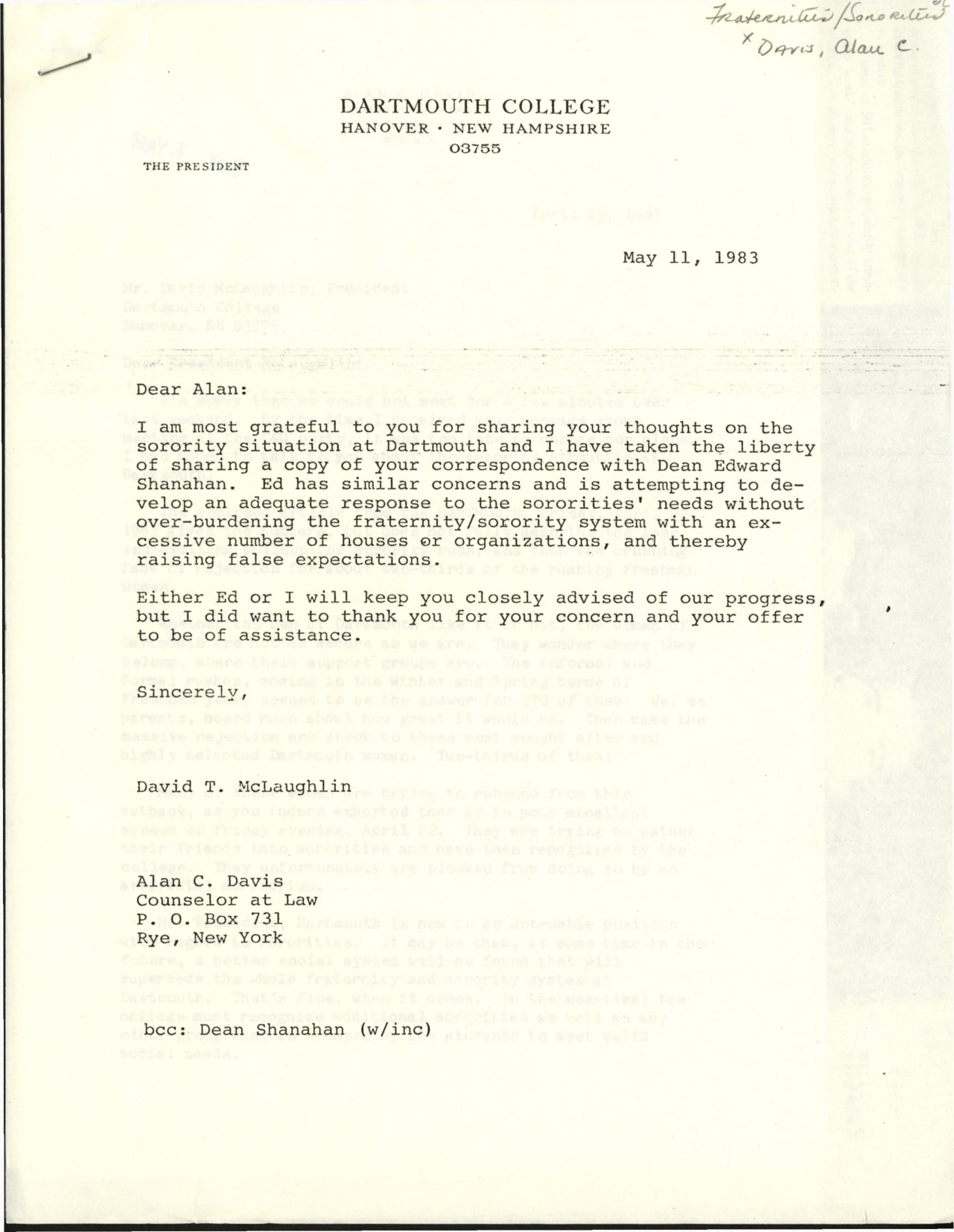
Letter from Alan Davis '52 to President David McLaughlin sent in 1983. Davis argued that the administration needed to prioritize the creation of more sororities to provide social spaces to women on campus.
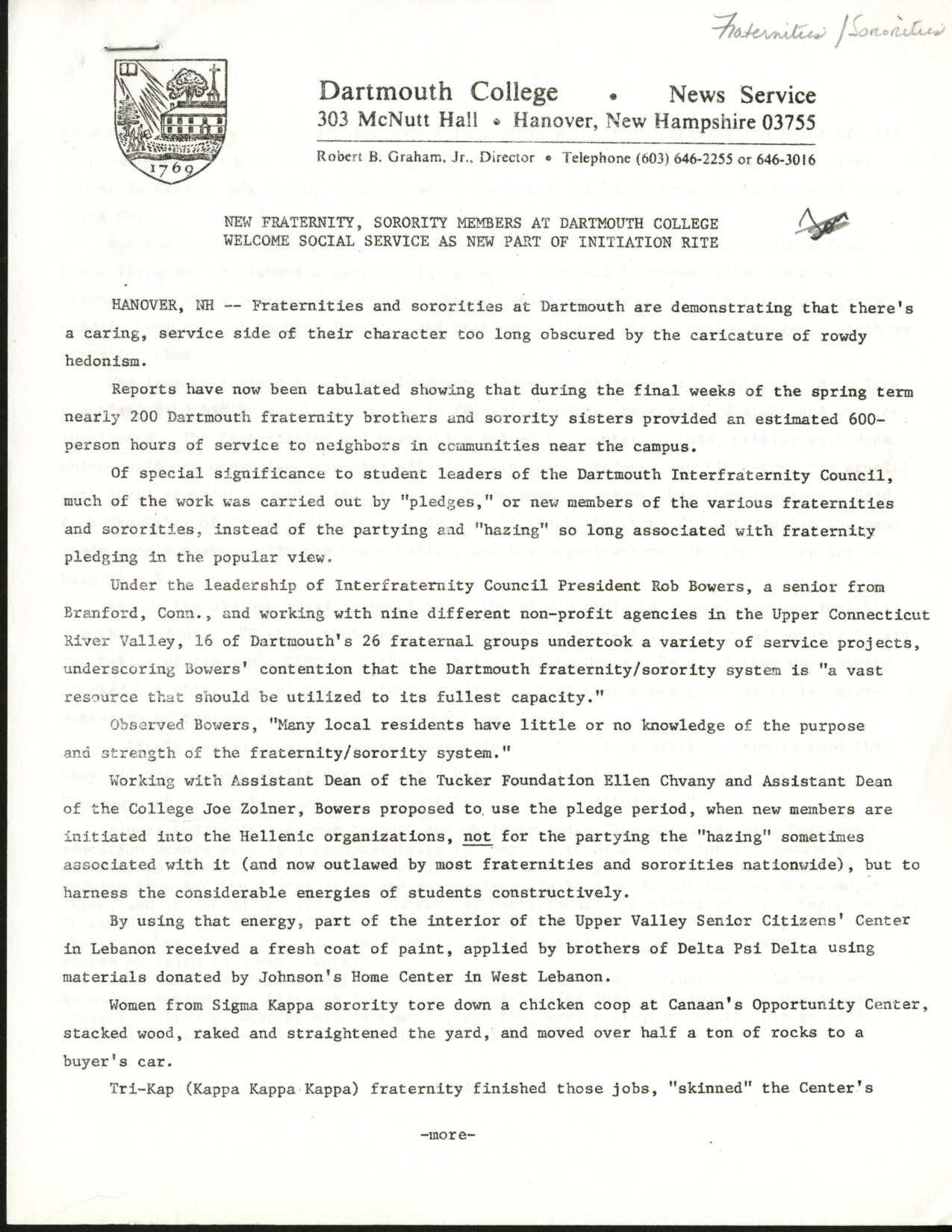
This brief from the Dartmouth College News Service in 1982 reported on the increase in service-oriented pledge projects. With the Board of Trustees threatening re-recognition, Greek Houses toned down pledge-period practices and shifted towards community service.
 Historical Accountability Student Research Program
Historical Accountability Student Research Program
